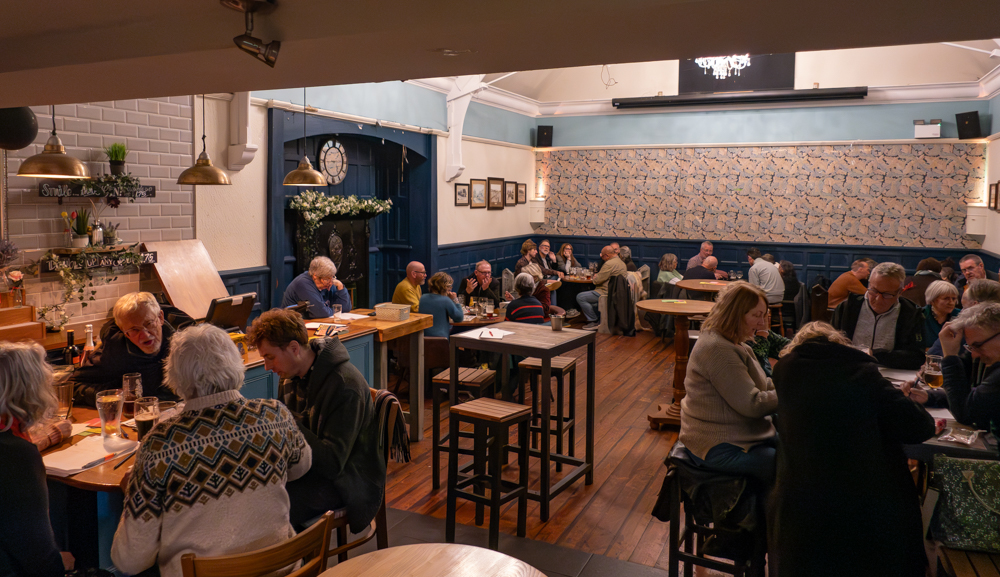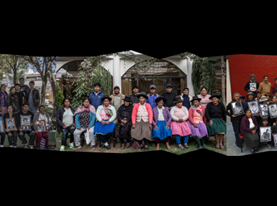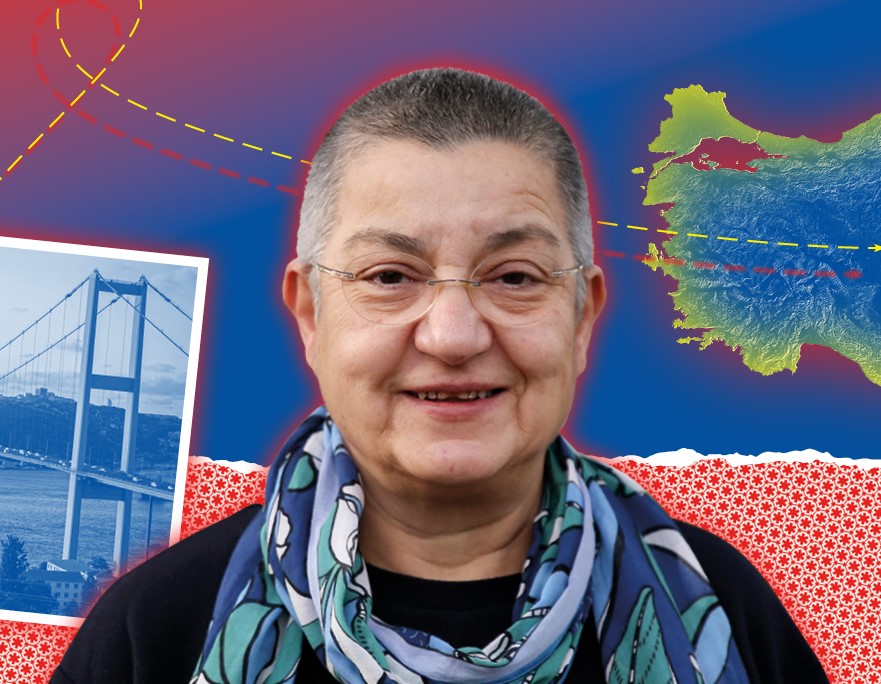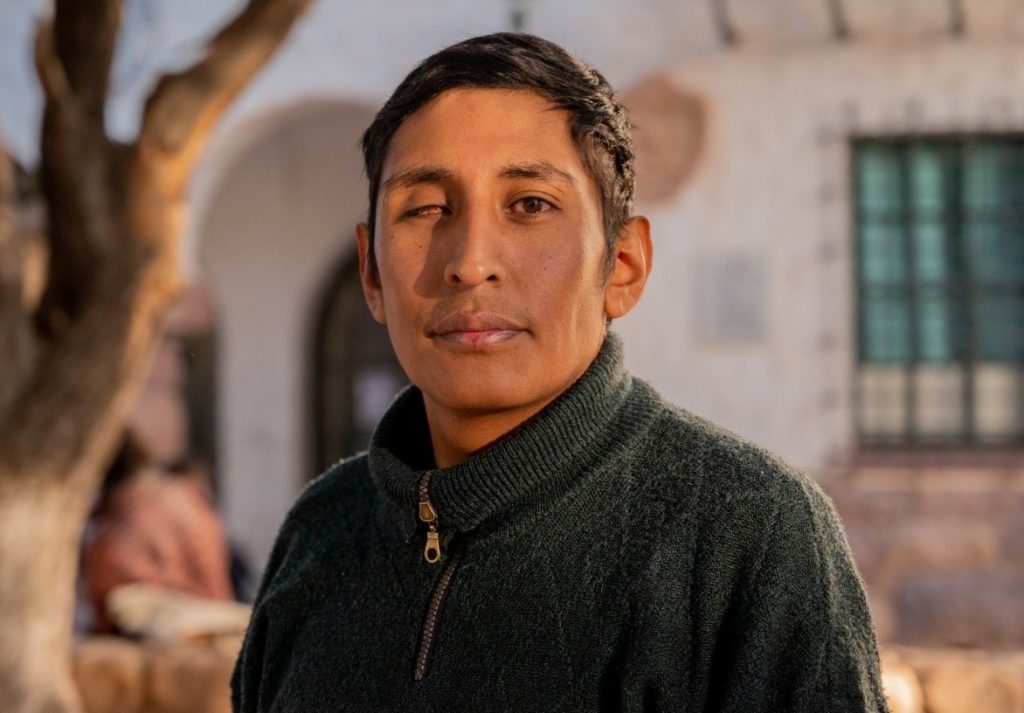|
|
|
|
|
|
|
local news & events Amnesty International group for Bournemouth, Poole & Christchurch
by zarganar
|
|
|
|
|
|
|
by zarganar

Many thanks to everyone who came to our Quiz Night, We had a great evening and raised over £300. Special thanks to the Brunswick again for giving us a great venue, for free. Also David Rogers for setting the questions and Sally Hawksworth for being the hostess. If you missed it you can download copies below.
At the event we signed a card of solidarity and support to Professor Şebnem Korur Fincancı. This was part of Write for Rights (W4R), Amnesty International’s annual campaign sending greetings cards to prisoners of conscience, their families and other human rights defenders around the world. Learn more about Professor Fincancı and how you can send her supportive messages and take action, and other people who are part of W4R.
by zarganar
This month we bring you news from Peru, Colombia, Argentina, Venezuela, Chile, Brazil, Paraguay and Ecuador.
PERU

Two Peruvian Human Rights Defenders will visit the UK from 10-13 November to raise international pressure in the search for justice for those who were killed or seriously injured during the repression of protests in Peru in 2022-2023. Yovana Mendoza Huarancca, Vice-President of the Ayacucho Victims Association, and Mario Iquita Chambi, Representative of the Juliaca Victims Association, will be speak at an event that we are organising at the Human Rights Action Centre on 11 November from 6pm to 8pm. Space will be limited to a maximum attendance of 40. You can book here. Their programme includes a meeting at the Foreign, Commonwealth and Development Office and an event at Parliament. You can still sign our petition here.
The UN Committee on the Elimination of Discrimination against Women (CEDAW) has found that the policy of forced sterilisation in Peru, which took place during the 1990s, amounted to sex-based violence and intersectional discrimination, particularly against Indigenous, rural, and economically disadvantaged women. The decision was a response to a joint complaint filed by five victims who were forcibly sterilised between 1996 and 1997 as part of the State-led birth control policy. [Read more…]
by zarganar
Write for Rights (W4R) is Amnesty International’s annual campaign, sending greetings cards to prisoners of conscience, their families and other human rights defenders around the world. Since W4R started in 2001, millions of people have taken part, helping to change the lives of those whose human rights have been taken away. Over the past 20 years, more than 56 million actions have been taken and over 100 people featured in the campaign have seen positive outcomes in their cases.
To take online actions about all the cases to to the main Amnesty International site
You can download the Campaign Booklet and other information on the AIUK site.
You can see videos on all the cases, created by Amnesty Canada, on YouTube.
Find out about our W4R events.
Forensic medicine expert and human rights defender Professor Şebnem Korur Fincancı has dedicated her life to eradicating torture and defending human rights. Trying to silence her, the Turkish authorities have subjected Şebnem to baseless criminal investigations. In 2023, she was convicted for allegedly “making propaganda for a terrorist organization” after she had called for an investigation into allegations that the Turkish military was using chemical weapons in Iraq. Şebnem is appealing against her conviction but could be imprisoned for almost two years if unsuccessful.
At home, Professor Şebnem Korur Fincancı enjoys spending time with her cats Simone and Ulula, cooking and listening to music. Beethoven is her favourite composer.
To the world, Şebnem is a forensic medicine expert, renowned for her work to eradicate torture. She has contributed to the development of a United Nations protocol on the investigation of torture, and a handbook on sexual violence for the World Health Organization. Until June 2024, she was the head of the Turkish Medical Association. Şebnem has also continually fought to protect the human rights of people in Türkiye, including their right to freedom of expression.
In a bid to silence her and stop her important work, for years the Turkish authorities have subjected Şebnem to baseless criminal investigations, detention and prosecutions. In January 2023, she was convicted for allegedly “making propaganda for a terrorist organization” after she had called for an investigation into allegations that the Turkish military was using chemical weapons in Iraq. Şebnem is appealing against her conviction but could be imprisoned for almost two years if her appeal is unsuccessful.
The government is cracking down on people’s freedom of expression and putting restrictions on the work of human rights defenders like Şebnem. But Şebnem refuses to give in to their intimidation. Undeterred by the hostility she faces, she says: “I have never had the habit of bowing to any authority to this day.”
Prof Şebnem Korur Fincancı
Türk Tabipleri Birliği
GMK Bulvarı
Şht. Danış Tunalıgil Sk. No: 2/17-2
06570 Maltepe/Ankara
Türkiye
Suggested message:
I stand with you, Prof Şebnem Korur Fincancı.
Defending human rights should never be a crime. Thank you for all your amazing work, we are in full solidarity with you.
Can I Send a religious card or message? No
Send an Amnesty card or mention Amnesty? Yes
Include my name and address? Yes
Creative solidarity ideas
• Draw a piano and reference Beethoven’s Moonlight Sonata
• Share a positive story of a doctor helping you or a loved one.
Send an appeal letter
Urge the minister to stop using the criminal justice system to harass Professor Şebnem Korur Fincancı and drop all charges for her human
rights work. Sample Appeal Letter
Write to
Yılmaz Tunç
The Ministry of Justice
T.C. Adalet Bakanlığı Kızılay
Milli Müdafa Cd. No:5
06420 Çankaya Ankara
Türkiye
Salutation Dear Minister
Email: ozelkalem@adalet.gov.tr
With both letters and emails, please CC (or write directly to) the Ambassador in London.
His Excellency Mr Osman Koray Ertaş
Ambassador to the United Kingdom
Embassy of the Republic of Türkiye
43 Belgrave Square SW1X 8PA
020 7393 0202
Fax 020 7393 0066
embassy.london@mfa.gov.tr

Twenty-nine-year-old ceramicist Víctor Joel Rodrigo Paredes lives in Humahuaca, a small town in Jujuy, a northern Argentine province. In June 2023 the local government pushed through changes to the province’s constitution, including restrictions on the right to peaceful assembly, as well as measures that may cause damage to the environment, and risk violating Indigenous Peoples’ land rights. The changes were approved without consultation with Indigenous Peoples or the wider population.
Jujuy is a province rich in lithium, a metal known as “white gold” due to its worldwide demand for the creation of batteries. Argentine authorities want to expand lithium exports. But people who live on the land, like Joel and his family, have serious doubts. Although not Indigenous himself, Joel sympathized greatly and was concerned for the future of his children who would grow up on the land. In support, on the evening of 30 June 2023, Joel joined a protest in Humahuaca square. Alongside hundreds of peaceful demonstrators, Joel played a “bombo” drum with his band while the City Council discussed the changes in a nearby building. For Joel: “Our musical instruments are our weapons.”
In the early hours of 1 July, the police arrived at the square and started recklessly firing rubber bullets into the crowd. Joel was hit in his right eye. The injury required surgery, but doctors could not save his sight and Joel is now permanently blind in his right eye. Joel is also left with debilitating nerve pain that impacts his daily life.
Joel filed an official complaint about the incident. The investigation is being handled by the Public Prosecutor’s Office. So far, no progress has been made in the investigation. No one has been held accountable for what happened to Joel and the other protesters.
Víctor Joel Rodrigo Paredes (Joel)
C/o Amnesty International Argentina
Santos Dumont 3429, 2nd floor
Buenos Aires
Argentina 1427
Suggested message
Stay strong Joel, we are fighting for justice.
¡Mantente fuerte Joel, estamos luchando por que se haga justicia!
Can I Send a religious card or message? No
Send an Amnesty card or mention Amnesty? Yes
Include my name and address? Yes
In solidarity messages avoid references to Joel’s eye injury.
Creative solidarity ideas
• Draw musical instruments (especially the bass drum) and/or ceramics to represent Joel’s love of music and pottery.
• Share your hobbies and passions, especially if they relate to pottery.
Send an appeal letter
Urge the attorney general to bring those responsible for Joel Paredes’s injuries, and all other violations against protesters, to justice in accordance with international law and standards. Emphasise the urgent need for justice and reparation for Joel and other victims of police violence in Jujuy. Sample Letter
Write to:-
Dr Sergio E. Lello Sánchez
Attorney General of the Public
Prosecutor’s Office
Sarmiento 427
4600 San Salvador de Jujuy
Argentina
email:- slello@mpajujuy.gob.ar
Salutation Dear Sir

by zarganar
Dear Amnesty Activists and supporters
Please take urgent action to stop Eritrean asylum-seekers being deported to Eritrea, where they would face torture and imprisonment. Here is a sample letter. Please also look at our Write for Rights case from Türkiye. After the last elections in Poland the government changed, but there are no improvements for refugees stuck in the swampy forests between Poland and Belarus, violently pushed back from both sides. Just today, Donald Tusk, the new Prime Minister of Poland announced that he wants to suspend the right to asylum, a grave violation of European and international human rights law. More details and reports below.
2 dates for your diaries : the Amplify Human Rights Festival on 7th December where we are contributing a workshop on Fortress Europe, and the screening of the Film “Green Border” at the Human Rights Action Centre on 16th January.
by Chris Ramsey
Hundreds of Eritrean nationals are at imminent risk of forcible return from Türkiye to Eritrea where they would face a real risk of torture, arbitrary detention and other serious human rights violations. Reports indicate that around 300 Eritreans recently detained in Türkiye without adequate access to communication or legal support have been deported to Eritrea. Amnesty says the authorities must immediately halt any plans to forcibly return Eritrean nationals from Türkiye and grant them access to asylum procedures, in line with international law.
Türkiye is party to the 1951 Refugee Convention and its 1967 Protocol. However, Türkiye retains a geographic reservation to its ratification of the Convention, so that only citizens from Council of Europe member states are allowed to apply for refugee status. People who do not qualify for refugee status in Türkiye, can request conditional refugee status or subsidiary protection under the Law on Foreigners and International Protection of 2013. The conditional refugee status was created for people originating from “non-European” states and provides more restrictive rights than the ones granted to refugee status holders.
Amnesty International has found that the Eritrean authorities regard the act of applying for asylum abroad as evidence of treason, and a reason to detain anyone forcibly returned to Eritrea. Appalling detention conditions in Eritrea amount to cruel, inhuman or degrading treatment. The United Nations High Commissioner for Refugees (UNHCR) has noted that “Eritreans who are forcibly returned may, according to several reports, face arrest without charge, detention, ill-treatment, torture sometimes death at the hands of the authorities. They are reportedly held incommunicado, in over-crowded and unhygienic conditions, with little access to medical care, sometimes for extended periods of time” and that “For someEritreans, being outside the country may be sufficient cause on return to be subjected to scrutiny, reprisals and harsh treatment. Individuals may be suspected of having sought asylum, participating in diaspora-based opposition meetings or otherwise posing a (real or perceived) threat to the Government, particularly where they have exited the country illegally.”
Furthermore, in 2015, the UN Human Rights Council Commission of Inquiry on human rights in Eritrea found that ‘’with a few exceptions, those who have been forced to return to the country have been arrested, detained and subjected to ill- treatment and torture.’’ According to a 2016 Amnesty International report, deserters are likely to face prolonged arbitrary detention, inhumane detention conditions and torture and other-ill treatment. National service is compulsory for all men and women between the ages of 18 and 40 in Eritrea, with additional mandatory reserve duties up to age 50. There is no limit on length of service. Initially 18 months long, it generally includes six months’ military service followed by 12 months’ deployment in military or government service. However, this is frequently extended indefinitely.
National service often involves forced or involuntary labour in state projects. Conscripts perform construction labour on government projects such as road building, work in the civil service or work for companies owned and operated by the military or ruling party elites. Conscripts are paid minimal salaries that do not meet the basic needs of their families. Much of the adult population of Eritrea is currently engaged in mandatory national service. There is no exemption from military service for conscientious objectors.
Use this model letter to the Head of Migration Management in Türkiye requesting that the country fulfils its international obligations with respect to refugees and desists from deporting people back to Eritrea. [Read more…]